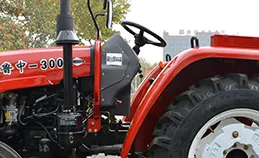Understanding the Characteristics and Uses of Heavy Duty Trucks in Various Industries
What Are Heavy Duty Trucks?
Heavy-duty trucks are a vital component of the transportation and logistics industry, playing a crucial role in the movement of goods across the country. These trucks, characterized by their increased capacity and robust construction, are designed to handle substantial loads and endure rough working conditions. This article will delve into the definition, features, types, benefits, and challenges associated with heavy-duty trucks.
Definition and Features
Heavy-duty trucks are typically classified as trucks with a Gross Vehicle Weight Rating (GVWR) of over 33,000 pounds (15,000 kg). They are engineered to transport heavy or bulky loads, making them indispensable in sectors like construction, mining, agriculture, and long-distance freight transportation. These trucks display several distinctive features that set them apart from light-duty trucks
1. Robust Engines Heavy-duty trucks are equipped with powerful engines capable of producing significant horsepower and torque. This power enables them to haul large loads and perform efficiently in demanding environments.
2. Enhanced Durability The construction of heavy-duty trucks uses high-strength materials to withstand harsh conditions. Their frames and axles are designed to endure the stresses of heavy loads and rough terrains.
3. Advanced Suspension Systems The heavy-duty suspension systems provide improved stability and comfort while driving, which is essential for long-distance journeys and transporting heavy freight.
4. Towing Capacity These trucks can tow trailers with substantial weight. The towing capacity is a critical consideration for industries that require the transportation of heavy equipment or multiple items at once.
5. Cargo Space Heavy-duty trucks often have larger cargo areas, including options for flatbeds, box trucks, and specialized designs that cater to specific industries.
Types of Heavy-Duty Trucks
Heavy-duty trucks come in various types, each serving different purposes. Some common categories include
1. Dump Trucks Primarily used in construction and mining, these trucks have a large open-box bed that can be raised at the front to allow for the quick unloading of materials such as sand, gravel, or debris.
2. Flatbed Trucks These trucks have a flat, open bed with no sides, allowing for easy loading and unloading of heavy items, such as construction materials, machinery, and vehicles.
3. Concrete Mixers Designed specifically for transporting concrete, these trucks have rotating drums that keep the concrete agitated to prevent it from setting prematurely.
4. Refrigerated Trucks Also known as reefers, these trucks are essential for transporting perishable goods. They are equipped with temperature-controlled units to maintain the necessary conditions for food safety.
what are heavy duty trucks

5. Tank Trucks Used for transporting liquids, including fuel, chemicals, and water, tank trucks come with specialized tanks that ensure safe and efficient delivery of liquid cargo.
Benefits of Heavy-Duty Trucks
The use of heavy-duty trucks brings various benefits to businesses and the economy
1. Efficient Transport Heavy-duty trucks can move large quantities of goods in a single trip, reducing transportation costs and time.
2. Versatility With different configurations available, heavy-duty trucks can adapt to various industries and cargo types.
3. Economic Impact The trucking industry is a significant contributor to the economy, providing jobs and facilitating trade.
4. Durability Their robust design ensures longevity, making them a cost-effective solution in the long run.
Challenges Facing Heavy-Duty Trucks
While heavy-duty trucks are essential, they also face several challenges
1. Environmental Concerns Heavy-duty trucks are often powered by diesel engines, leading to concerns over emissions and air quality. Regulations are becoming stricter to promote greener technology.
2. Operational Costs The cost of fuel, maintenance, and repairs can be substantial. Companies need to invest wisely to maintain their fleet's profitability.
3. Driver Shortage The trucking industry is facing a significant shortage of qualified drivers, which can impact logistics and supply chains.
4. Safety Issues Due to their size and weight, heavy-duty trucks can be involved in severe accidents. Ensuring driver training and adherence to safety regulations is crucial for reducing these incidents.
Conclusion
Heavy-duty trucks are indispensable assets in numerous industries, facilitating the movement of goods efficiently and effectively. Their powerful engines, robust construction, and diverse configurations make them suitable for a wide range of applications. However, the industry must continue to address environmental, operational, and safety challenges to ensure the sustainable future of heavy-duty trucking. As technology advances and regulations evolve, the heavy-duty truck landscape is likely to see significant changes aimed at improving performance while minimizing environmental impact.
-
Fast Gearbox Transmission Parts Slave Valve – Durable & Reliable SolutionNewsJul.28,2025
-
Hydraulic Lock Assembly for SHACMAN Truck Parts – Durable & ReliableNewsJul.28,2025
-
SINOTRUK HOWO 84 Electric Dump Truck for Eco-Friendly Heavy HaulingNewsJul.26,2025
-
The Fast 16-Gear Manual Transmission Assembly for Heavy TrucksNewsJul.25,2025
-
Mercedes Benz Actros 1848 42 Tractor Truck for Sale - Reliable PerformanceNewsJul.24,2025
-
High-Quality Water Pump Assembly for Sinotruk Trucks – Durable & ReliableNewsJul.23,2025
Popular products

























